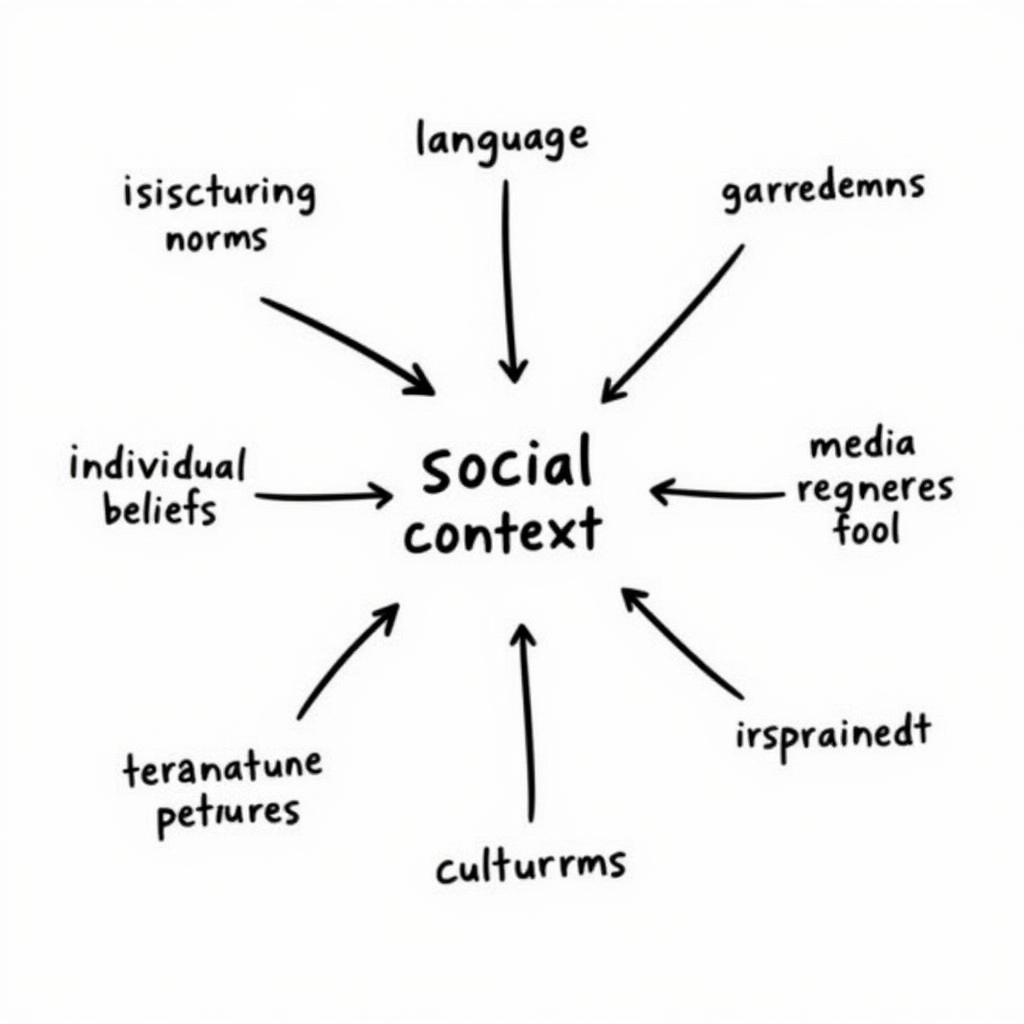Qualitative research delves into the intricate world of human experiences, beliefs, and behaviors, providing rich insights that go beyond numerical data. Unlike quantitative research, which relies on statistical analysis, qualitative research analyzes non-numerical data like text documents, audio recordings, and videos to uncover patterns and themes. This approach is particularly valuable when exploring complex social phenomena or seeking a deeper understanding of human perspectives. At the heart of this exploration lies data analysis, a crucial step that transforms raw data into meaningful findings. Let’s explore the different Types Of Data Analysis In Qualitative Research.
Content Analysis: Unveiling Meaning Through Patterns
Content analysis involves systematically examining textual or visual data to identify recurring themes, patterns, and meanings. Imagine you’re researching paranormal encounters. Content analysis allows you to analyze written accounts, identifying common threads in the experiences, such as the time of day, emotional states, or environmental factors. This method can be applied to various data sources, including interview transcripts, social media posts, and historical documents.
Thematic Analysis: Uncovering the Underlying Narrative
Thematic analysis focuses on identifying, analyzing, and reporting patterns (themes) within data. It goes beyond simply identifying recurring words or phrases; it delves into the underlying ideas, assumptions, and conceptualizations that shape the data. Returning to our paranormal investigation example, imagine multiple accounts mention a “feeling of being watched.” Thematic analysis would explore this feeling, considering the context, related emotions, and potential explanations offered by the individuals involved.
Different Approaches to Thematic Analysis
- Inductive Thematic Analysis: This approach allows themes to emerge organically from the data without imposing pre-defined categories. It starts with immersing oneself in the data and gradually identifying recurring patterns and meanings.
- Deductive Thematic Analysis: This method uses pre-determined themes based on existing theories or research questions. Researchers analyze the data through the lens of these pre-defined categories, looking for evidence to support or refute their hypotheses.
Discourse Analysis: Deconstructing Language and Power
Discourse analysis examines how language constructs meaning and shapes social reality. This approach analyzes language in its social context, considering factors such as power dynamics, cultural norms, and historical influences. In the context of paranormal research, discourse analysis could be used to examine how paranormal phenomena are discussed in different communities or how language is used to construct narratives of belief and skepticism.
 Discourse Analysis Visualization
Discourse Analysis Visualization
Narrative Analysis: Stories as Windows into Experience
Narrative analysis focuses on the stories people tell and how those stories shape their understanding of the world. It recognizes that human experience is often best understood through narratives, which provide a framework for making sense of events, emotions, and relationships. Applying this to Paranormal Research, we can analyze how individuals construct narratives around their experiences, considering how these narratives are shaped by personal beliefs, cultural influences, and interactions with others.
Grounded Theory: Building Theories from the Ground Up
Grounded theory is a systematic methodology for developing theories that are grounded in the data. It’s an iterative process that involves collecting, coding, and analyzing data simultaneously. Researchers constantly compare new data with existing findings, refining their understanding and building a theory that explains the phenomenon under investigation.
Choosing the Right Approach: Finding the Perfect Fit for Your Research
Selecting the most appropriate data analysis method depends on the nature of your research question, the type of data you have collected, and your overall research goals. If you’re looking for recurring themes and patterns, content analysis might be suitable. If you want to explore the underlying narratives and experiences, thematic or narrative analysis could be more appropriate.
Conclusion: Unlocking the Power of Qualitative Data Analysis
Qualitative research provides a powerful lens for understanding the human experience, and data analysis is the key to unlocking the insights hidden within the data. By carefully selecting and applying appropriate data analysis methods, researchers can transform raw data into meaningful findings that shed light on complex social phenomena. Need help navigating the world of qualitative research? Contact our team at [Phone Number: 0904826292, Email: [email protected]], or visit us at [No. 31, Alley 142/7, P. Phú Viên, Bồ Đề, Long Biên, Hà Nội, Việt Nam]. Our dedicated team of research experts is available 24/7 to assist you.